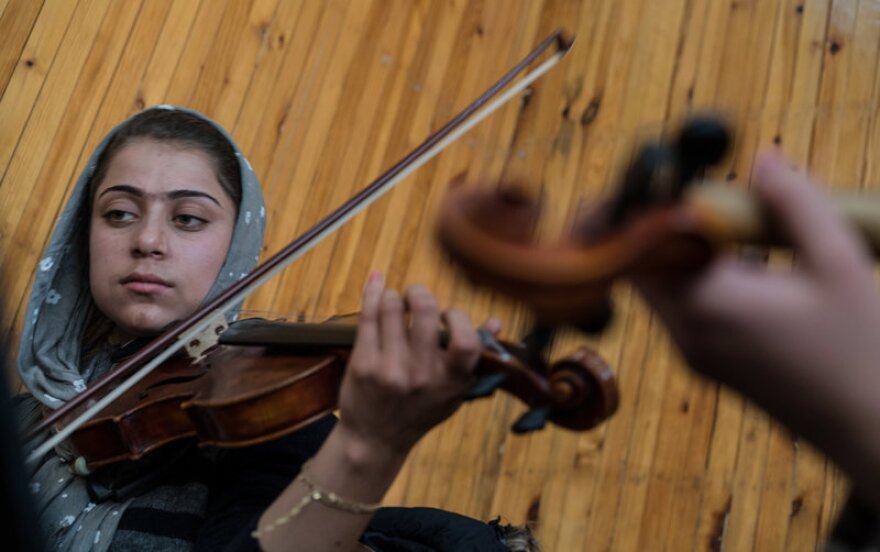Most musical groups have a mission – like the Rochester Philharmonic Orchestra (To inspire, educate and engage our community through the art of music).
There are a few ensembles who aim to do even more – something beyond the already laudable musical missions of most groups. Here are a few orchestras with extra-musical missions that I have come across over the past few months that I thought you might enjoy knowing.
The Recycled Orchestra (aka Landfill Harmonic)
Cateura, Paraguay
Environmental engineer Favio Chavez started the group, planning at first just to teach music to kids during his spare time to help the community. The program became so popular that they ran out of instruments, which is when they turned to items from the landfill – and some creative engineering – to get more instruments. They are the subject of the documentary Landfill Harmonic (which is showing April 8th & 9th at The Smith in Geneva) and their musicians tour around the world.
Zohra
Kahul, Afghanistan
“It's perhaps the unlikeliest symphony orchestra in the world — an all-female ensemble from a strict Muslim society where it's often dangerous for young women to step outside of their homes unescorted.”
There are 30 women between the ages of 14 and 20 in this orchestra based at the Afghanistan National Institute of Music in Kabul. Some of them are the first person in their province to play an instrument. The orchestra’s two conductors are also young women studying at the school.

United States/Mexico Youth Philharmonic Orchestra
El Paso, Texas, USA; Juarez, Mexico
Two youth orchestra teamed up for a concert across the border – playing in both the United States and in Mexico. Their first joint concert was earlier this year, but representatives from the project said that they hope to keep the project going and perform more often.
West-Eastern Divan Orchestra
In 1999, Daniel Barenboim and Edward Said founded the West-Eastern Divan as a workshop for Israeli, Palestinian and other Arab musicians. Meeting in Weimar, Germany – a place where the humanistic ideals of the Enlightenment are overshadowed by the Holocaust – they materialized a hope to replace ignorance with education, knowledge and understanding; to humanize the other; to imagine a better future. Within the workshop, individuals who had only interacted with each other through the prism of war found themselves living and working together as equals. As they listened to each other during rehearsals and discussions, they traversed deep political and ideological divides. Though this experiment in coexistence was intended as a one-time event, it quickly evolved into a legendary orchestra.
Inspired? Anyone else you think I should know about?


